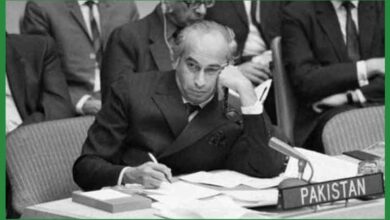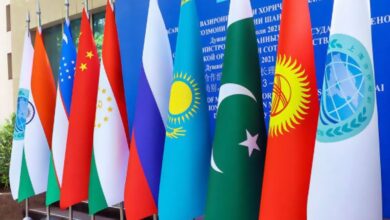Lenin once said, “There are decades when nothing happens and then there are weeks when decades happen.”
Last week was one such moment when the 54-year old Republican Assad family dynasty folded up over the weekend, with President Bashar Al Assad fleeing Damascus, similar to how Prime Minister Sheikh Hasina fled Dhaka earlier this year following the student revolution in Bangladesh. This is a classic example of regimes and rulers on the run. As so often happens in countries where dynastic despotism exudes an arrogance of power, an aura of infallibility instils in a ruler a false sense of entitlement, as if they are born to rule. The end, when it comes, is a swift surprise, an unraveling of the entire edifice in a matter of days.
The Syrian Surprise is the biggest tectonic transformation in the Muslim World since the Iranian Revolution in 1979, marking three significant changes.
First, it marks the formal death of Baathism as ideology, replaced by al-Qaeda’s radical Islamism. Baathism had been a major driving force in Arab politics for most of the 20th Century, ruling two key countries like Iraq and Syria, and dominating the intellectual discourse for decades on end.
Second, the dismantling of the Assad dynasty also marks an end to the ‘Axis of Resistance’, which Iran had cobbled together with Syria as well as Hamas and Hezbollah. Not only Iran and Russia as well as Arab Gulf monarchies are now the biggest losers – as they put in a lot of effort, energy and money to block the political Islamists like the Muslim Brotherhood, even instigating a coup in Egypt – but the net result is the resurgence of allies of al-Qaeda and ISIS who now control Syria.
Third, a hundred years after the 1920 Treaty of Sevres dismantled the Ottoman Empire, carving it up among then two key colonial powers like Britain and France, there is now a resurrection of the modern refurbished neo-Ottoman Turkey under President Recep Tayyip Erdogan as the dominant force in a truncated Syria, and Turkey has avenged the injustice done a century ago. Israel and West are happy for the moment, but the irony is that the War on Terror led to installation of the Taliban regime in Afghanistan and the ‘Arab Spring’ has culminated in the assumption of power of al-Qaeda in Syria – Frankensteins which will eventually turn on their masters! Actually, the ‘Deep State’ of this Triple Alliance of Israel, Turkey and the US has, for the first time, defeated the Iranian ‘Deep State’ in the Middle East Great Game!
It’s difficult to empathise with the fallen Assad dynasty, as Bashar had the opportunity to do a deal with his opponents but he dismissed them as ‘non-entities’ and squandered that moment. Regime change in the Arab world that began with the ‘Arab Spring’ in 2011 has devoured longstanding regimes and rulers, starting with Tunisia (21 years), Egypt (30 years), Libya (42 years), Yemen (33 years), Sudan (22 years) and finally, Syria (54 years). When the primary goal of any regime is self-perpetuation by converting itself into family/dynastic despotism then the logical end is predictable.
Some lessons need to be learnt from this epochal moment in the Muslim world. Regimes have to be responsive to popular aspirations, otherwise, whether it’s Afghanistan, Bangladesh or Syria, the propped-up rulers end up fleeing to save themselves. More often than not, when the end is near, they cling to straws seeking a deal but then it’s too little, too late. Clinging to power at all costs is not an option. For example, the human costs of the Syrian civil war have been horrendous: out of a population of 23 million, 13 million are either displaced at home or refugees abroad, with over half a million killed in strife.
The legacies of the Western policies of intervention and regime change in the Muslim world have had devastating consequences as can be seen in Afghanistan, Iraq, Libya and now Syria. The seeds of the Frankenstein monsters they created in short-sighted policies, aimed at achieving tactical goals, have become strategic liabilities with long-term complications. For example, President Carter’s National Security Adviser Dr Zbigniew Brzezinski famously told a French journalist in 1998 when the Afghan jihad with the US funding had morphed into al-Qaeda: “What is more important, a few stirred up Muslims or the dismantling of the Soviet empire and collapse of Communism?” In other words, what the CIA did during the Afghan jihad pumping $2.1 billion dollars, supporting the Afghan and Arab mujahideen was well worth it!
For Pakistan too, there are lessons, as the winds of change are blowing all across the region, from Damascus to Dhaka where unpopular family oriented despotic, dependent regimes are crumbling. Pakistan’s regime also better watch out given that theirs is a narrow based arrangement, lacking in popular legitimacy and surviving on props as there is anger at alienation at policies that are suffocating and choking, especially for the educated middle classes, youth and professionals. The Pakistani political culture is very vibrant and given the fact that Quaid-e-Azam was a strong believer in the rule of law and civil liberties, who even spoke up for the human rights of Bhagat Singh, whom the British had dubbed as ‘terrorist’, the Pakistani political DNA is embedded in a culture where democracy and defiance are deep-rooted.







